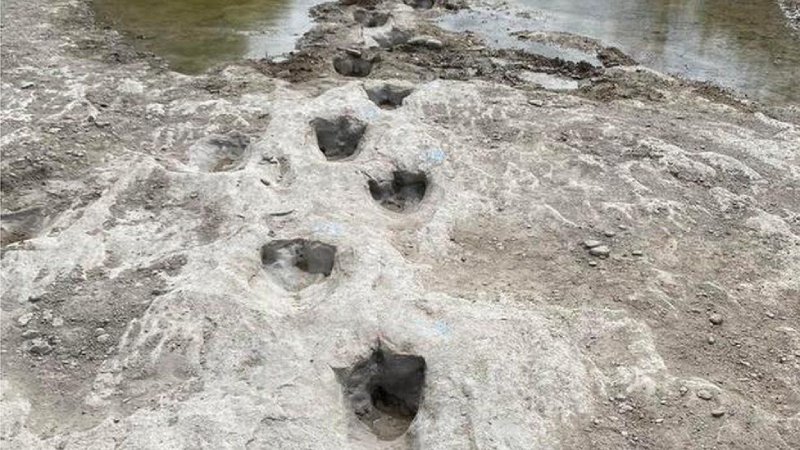About 70 dinosaur footprints have been found at Dinosaur Valley State Park in Glen Rose, Texas, thanks to an extended drought.
The footprints, which are believed to be 110 million years old, were submerged in dirt and water in the Paluxy River, which runs through the state park.
Experts believe that the traces, which were discovered in the area known as the state park’s Ball Room site, belonged to two distinct dinosaur species. The “elephant-looking” footprints were made by a large long-necked Sauroposeidon, while the three-toed traces were probably made by the enormous carnivorous Acrocanthosaurus.
With a length of roughly 40 feet (12 metres), Acrocanthosaurus was one of North America’s largest carnivores during the Early Cretaceous period (145 million to 101 million years ago). The Natural History Museum in London claims that the long-necked Sauroposeidon, a genus of sauropod, dwarfed it with a length of about 100 feet (30 m) and a massive weight of 110,000 pounds (50 metric tonnes).
According to a video from WKYC Channel 3, one section in particular, known as the “Lone Ranger Track,” is thought to be one of the longest dinosaur tracks in the world.
According to a Facebook post by Friends of Dinosaur Valley State Park officials, who support the park, the tracks were initially discovered on Friday, August 25. They were “the most tracks we have ever seen at this location,” they said.
Although the two years of high temperatures and drought circumstances have not been typical for us, Paul Baker, store manager at the Friends of Dinosaur Valley State Park, told the Chron.com that they have allowed them to find fresh tracks. The majority of the tracks will be re-covered once we have a good rain.


